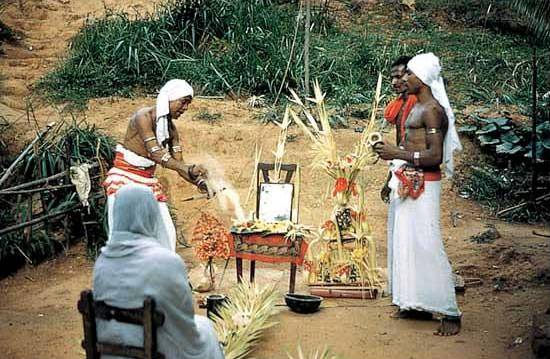EXCITING NEWS: TNG WhatsApp Channel is LIVE…
Subscribe for FREE to get LIVE NEWS UPDATE. Click here to subscribe!
Traditional worshippers in Ondo State, located in southwest Nigeria, are advocating for the recognition of traditional oath-taking for public officials, arguing that it is more powerful and effective than the current faith-based oath-taking methods.
They claim that over the years, public officials, after being sworn into office using the Bible for Christians and the Quran for Muslims, have engaged in corruption and abuse of power without facing consequences.
Ayobami Ogedengbe, the Araba Awo of Oke Agbe, made this suggestion during the Isese Day celebration in Akure on Tuesday.
He argued that traditional oath-taking would alter the current system, as any violation would result in immediate and severe punishment.
Ogedengbe emphasized that to restore integrity and order in public offices, the government should permit traditional oath-taking.
He noted that in Yorubaland, the potency and consequences of breaking such oaths are well understood.
“The current system in Nigeria has flaws that undermine integrity.
Our people are aware that the gods uphold honesty, and no Yoruba person would dare violate an oath taken before the gods,” he said.
“This will restore order in our system because an average African, especially a Yoruba person, fears the repercussions of swearing by Ogun (the god of thunder) or other traditional deities.
They wouldn’t dare swear to something they don’t believe in.
Swearing through traditional means enhances the potency of African traditional religion and its practices.”
Speaking at the event, Araba Folorunsho Adetunji, the Araba Isese of Ondo State, called on the Ondo government to declare August 20 a public holiday in honor of the Isese festival.
“Isese Day is a celebration of our roots, highlighting the achievements of our ancestors and embracing our culture and customs,” Adetunji explained.
